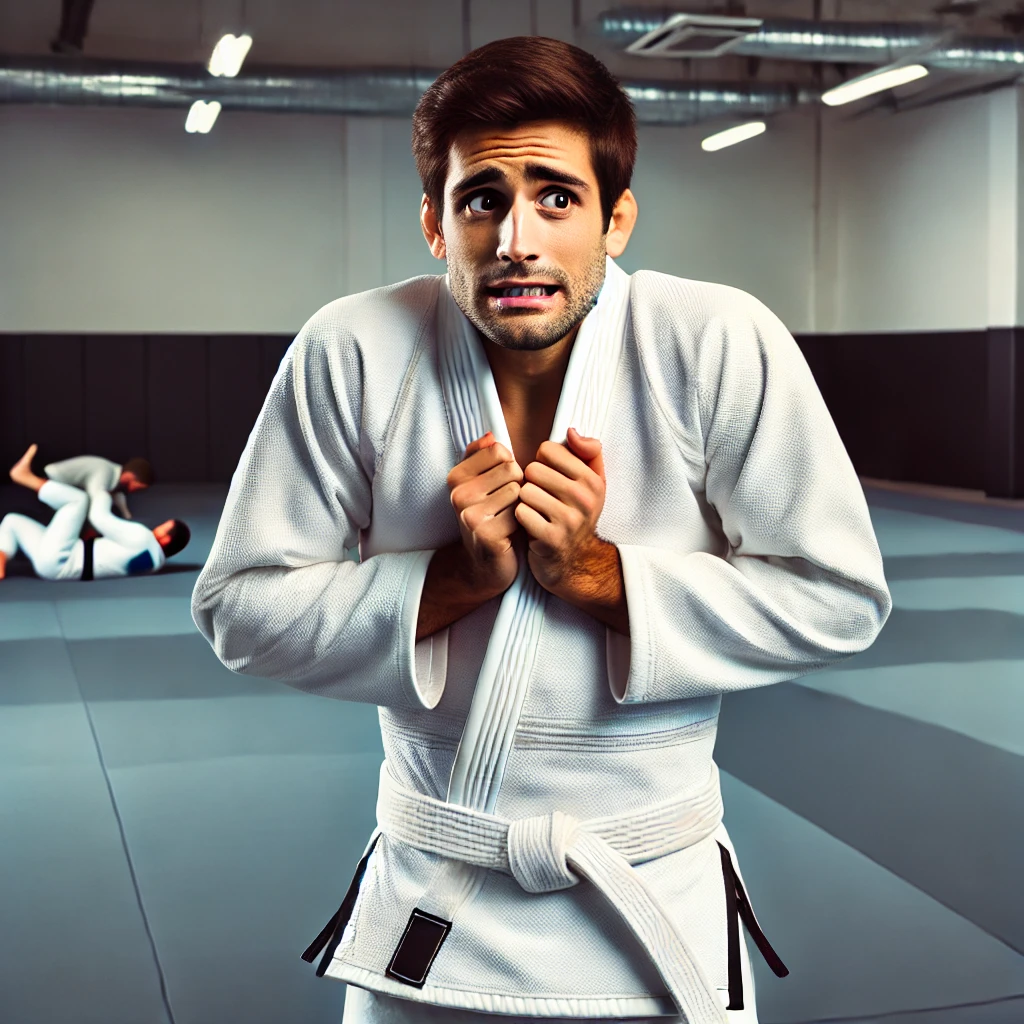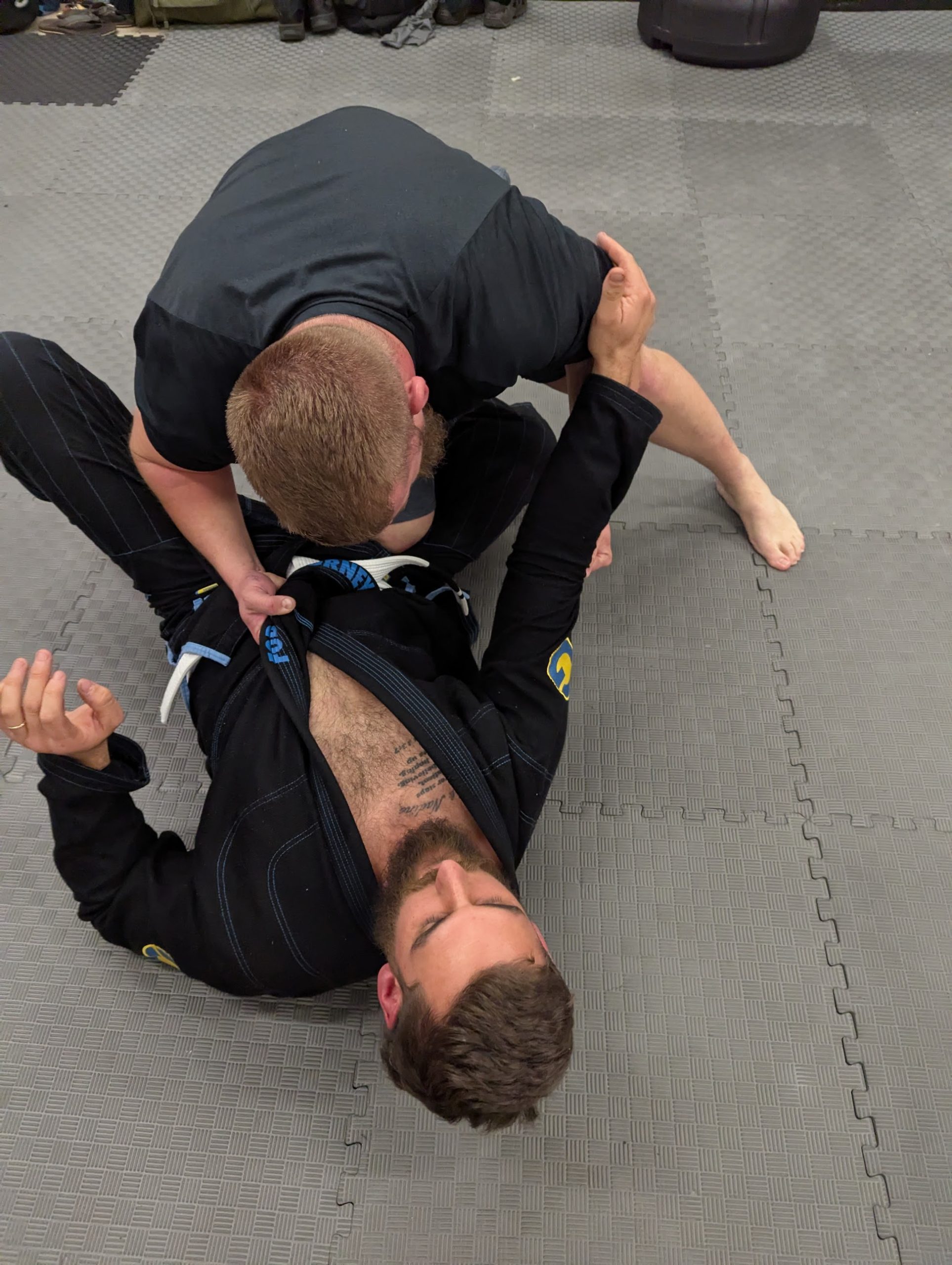The fear of looking foolish is one of the biggest mental hurdles preventing people from starting Brazilian Jiu-Jitsu (BJJ). Whether it’s the close physical contact, the unfamiliar movements, or the prospect of being submitted by training partners, this anxiety is completely normal. Here’s your guide to conquering these fears and starting your BJJ journey with confidence.
Understanding the Universal Beginner Experience
Every single black belt you see on the mats once started as a clumsy white belt. The reality is that everyone looks awkward when learning BJJ – it’s an unavoidable part of the journey. The techniques and movements in BJJ are unlike anything most people have experienced before, making that initial awkwardness completely natural and expected.
Why We Feel Foolish
Several factors contribute to feeling self-conscious in BJJ:
Unfamiliar Physical Contact
BJJ requires close physical contact that might feel uncomfortable at first. You’ll be in positions that would be considered strange in any other context. This discomfort is universal and temporary – everyone goes through this adjustment period.
Complex Body Mechanics
The human body doesn’t naturally move the way BJJ requires. Simple movements like shrimping or bridging feel alien at first. Your body needs time to develop new movement patterns and muscle memory.
The Humbling Nature of Training
In BJJ, you’ll regularly face situations where you’re unable to stop someone from controlling or submitting you. This can feel embarrassing until you understand it’s an essential part of the learning process.
Practical Strategies to Overcome Your Fears
1. Embrace the Beginner’s Mind
- Adopt a learning-focused mindset rather than a performance-focused one
- Remember that making mistakes is how we learn
- View each class as an experiment rather than a test
2. Find Your Tribe
- Connect with other white belts who share your experience
- Talk to senior students about their early experiences
- Remember that most BJJ practitioners are incredibly supportive of newcomers
3. Focus on Small Wins
- Celebrate minor improvements like remembering a technique’s name
- Notice when movements become more natural
- Keep a training journal to track your progress
4. Develop Realistic Expectations
Your goals for the first few months should be simple:
- Show up consistently
- Stay safe
- Learn to fall properly
- Master basic movements
- Understand fundamental positions
Common Scenarios and How to Handle Them
Getting Submitted
Remember that getting submitted is not losing – it’s learning. Each submission is valuable feedback about what doesn’t work and what you need to improve. Even advanced practitioners tap regularly during training.
Forgetting Techniques
It’s normal to forget steps in a technique, especially when learning something new. Don’t hesitate to:
- Ask your partner for help
- Watch the technique again
- Take notes after class
- Practice visualization during downtime
Physical Exhaustion
Being the most tired person in class is common for beginners. Your body needs time to develop the specific conditioning BJJ requires. Focus on:
- Pacing yourself
- Breathing properly
- Taking breaks when needed
- Staying hydrated
The Mental Game: Reframing Your Perspective
From Embarrassment to Opportunity
Every moment of feeling foolish is actually an opportunity to learn. When you catch yourself feeling self-conscious, try:
- Acknowledging the feeling without judgment
- Reminding yourself that discomfort leads to growth
- Focusing on the technique rather than your performance
Building Mental Toughness
The mental challenges in BJJ can help develop resilience that extends beyond the mats. Each time you push through discomfort, you’re building:
- Emotional strength
- Self-confidence
- Problem-solving skills
- Adaptability
Creating a Sustainable Practice
Set Yourself Up for Success
- Arrive early to acclimate to the environment
- Choose training partners who match your intensity level
- Communicate openly with your instructor about concerns
- Take rest days when needed
Build a Support System
- Join BJJ social media groups
- Connect with training partners outside of class
- Share your journey with friends and family
- Find a mentor at your academy
The Long-Term Perspective
Remember that BJJ is a marathon, not a sprint. The feelings of awkwardness and self-consciousness will fade as you gain experience. What remains is:
- A deeper understanding of yourself
- Strong bonds with training partners
- Improved physical and mental capabilities
- A sense of accomplishment
Conclusion
The fear of looking foolish in BJJ is temporary, but the benefits of training last a lifetime. By acknowledging these fears while continuing to show up and train, you’re already displaying the courage that makes BJJ practitioners special. Trust in the process, stay consistent, and remember that every person on the mats has felt exactly what you’re feeling.
Your future self will thank you for pushing through these initial challenges. The day will come when you’ll help another nervous beginner overcome their fears, completing the cycle that makes the BJJ community so unique and supportive.





